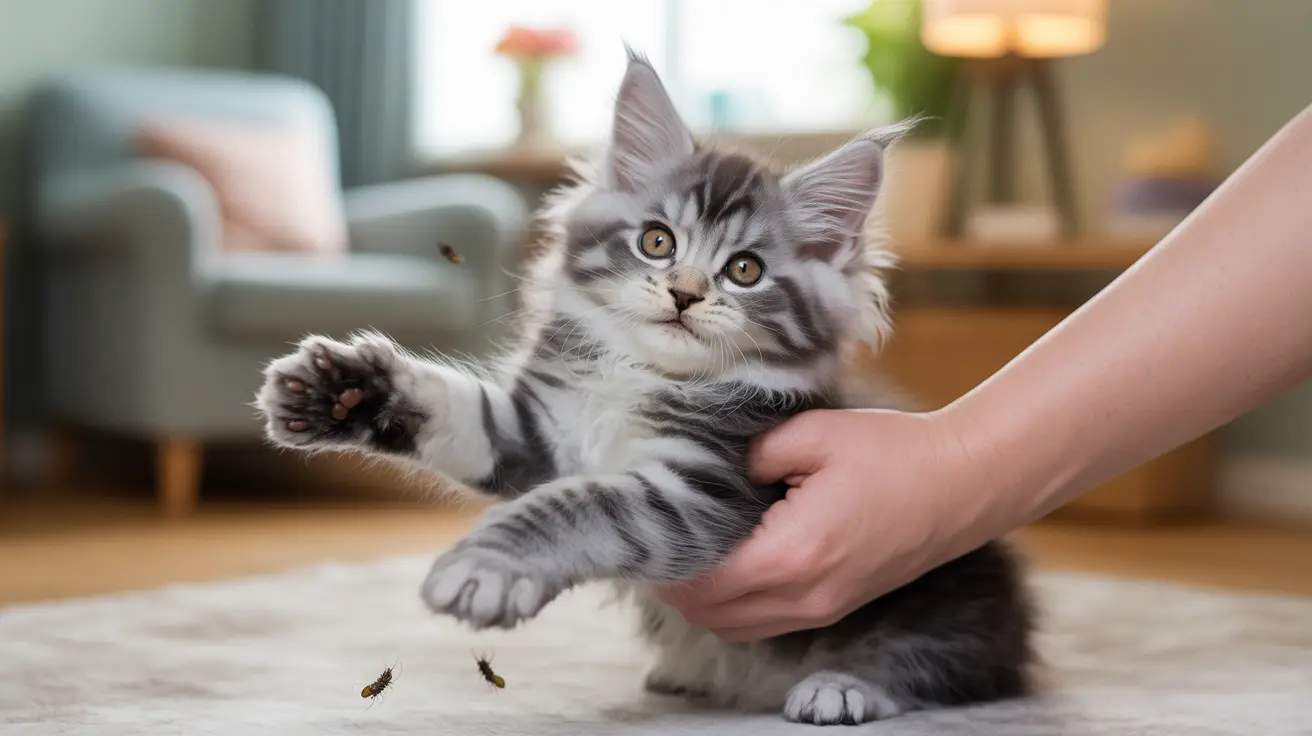How Fleas Threaten Kitten Survival
Fleas pose several serious health risks to kittens, with anemia being the most immediate and life-threatening concern. A single flea can consume up to 15 times its body weight in blood daily, and when multiple fleas infest a tiny kitten, the blood loss can quickly become critical.
Young kittens are particularly vulnerable because of their small size and limited blood volume. Even a moderate flea infestation can drain enough blood to cause severe anemia in just a few days.
Recognizing Dangerous Flea Infestations
Visual Signs of Fleas
Look for these telltale signs of flea presence:
- Small brown insects moving through the fur
- Black specks (flea dirt) that turn reddish when wet
- Excessive scratching or grooming
- Skin irritation or hair loss
Symptoms of Flea-Related Anemia
Watch for these potentially life-threatening symptoms:
- Pale or white gums
- Extreme lethargy
- Weakness or collapse
- Rapid breathing
- Cold ears and paws
- Decreased appetite or nursing
Emergency Treatment for Flea-Infested Kittens
If you suspect your kitten has fleas, immediate action is crucial. For kittens under eight weeks old, traditional flea treatments can be toxic, so follow these safe steps:
- Contact a veterinarian immediately
- Use a flea comb to remove visible fleas
- Give warm baths with mild dish soap if approved by your vet
- Keep the kitten warm during and after treatment
- Monitor for signs of improvement or deterioration
Prevention and Ongoing Protection
Preventing flea infestations is far safer than treating them. Implement these protective measures:
- Regular flea combing to check for early signs
- Age-appropriate flea prevention as recommended by your vet
- Thorough cleaning of living areas
- Treatment of all pets in the household
- Regular washing of bedding and play areas
Frequently Asked Questions
Can fleas actually kill a kitten, and how does flea anemia cause this?
Yes, fleas can kill a kitten through severe blood loss leading to anemia. When multiple fleas feed on a kitten's blood, they can quickly deplete the kitten's limited blood volume, leading to organ failure and death if left untreated.
What are the signs that my kitten has a dangerous flea infestation or anemia?
Key signs include pale gums, lethargy, weakness, rapid breathing, and cold extremities. You may also notice visible fleas, black flea dirt in the fur, and excessive scratching.
How do I safely remove fleas from a newborn or very young kitten?
Use a flea comb frequently, give warm baths with mild soap if veterinarian-approved, and manually remove visible fleas. Never use over-the-counter flea treatments without consulting your vet first.
What flea treatments are safe and effective for kittens under 8 weeks old?
For kittens under 8 weeks, mechanical removal with a flea comb and warm baths with mild soap are safest. Always consult a veterinarian before using any flea treatment products.
How can I prevent flea infestations and protect my kitten from health risks?
Maintain a clean environment, regularly check for fleas with a flea comb, treat all pets in the household with veterinarian-approved preventatives, and wash bedding frequently. Consult your vet for age-appropriate prevention methods.
Conclusion
Flea infestations in kittens are a serious health threat that requires immediate attention and proper treatment. By understanding the risks, recognizing the signs early, and taking appropriate preventive measures, you can protect your kitten from these potentially lethal parasites. When in doubt, always consult with a veterinarian for proper guidance and treatment options.






